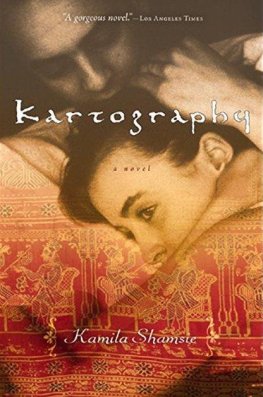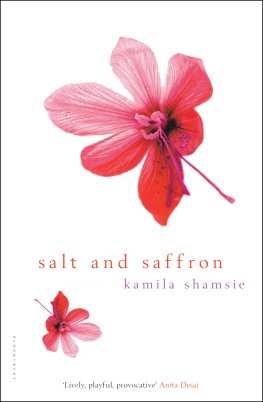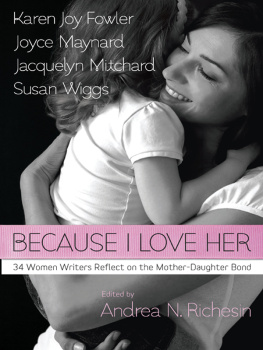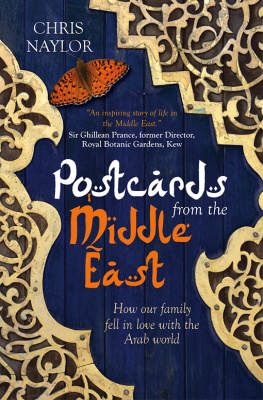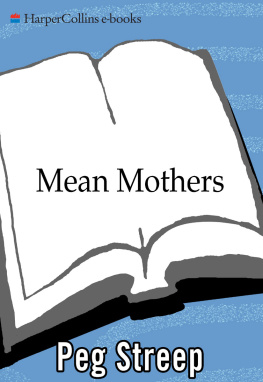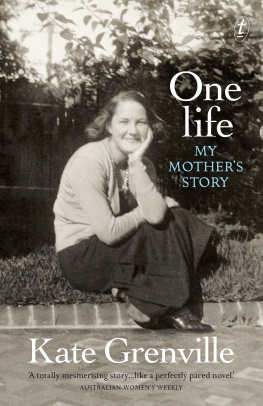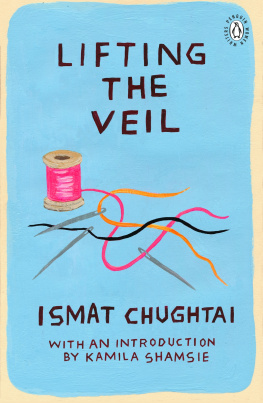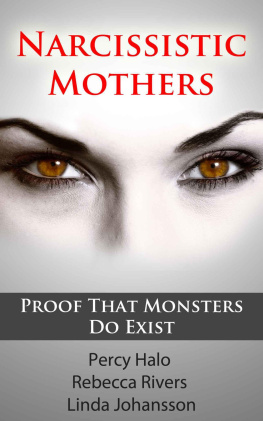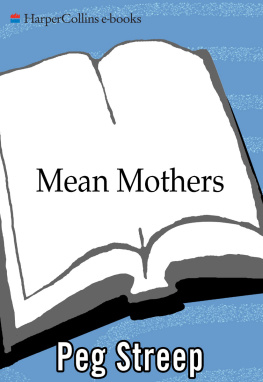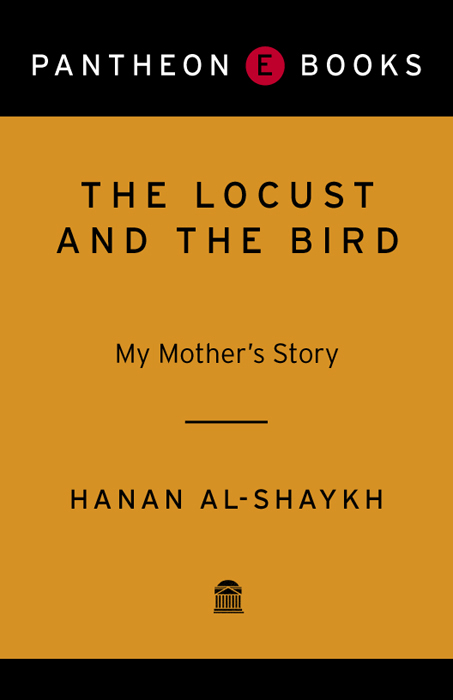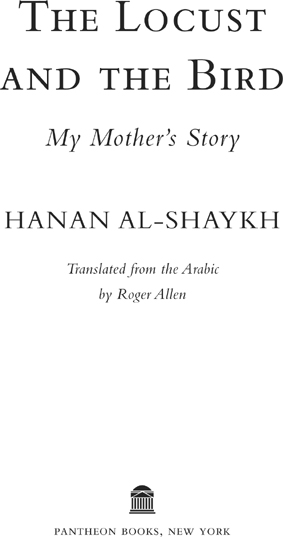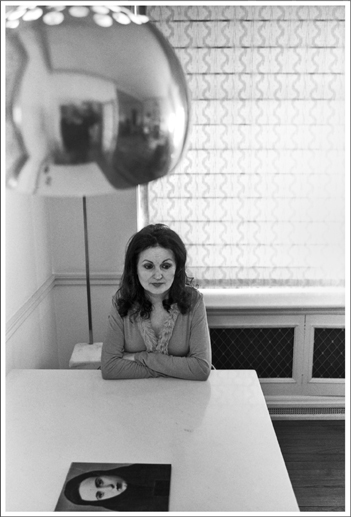O NCE UPON A time, a king was taking a stroll in his garden when a locust flew into the wide sleeve of his robe. A bird, in hot pursuit, flew in after it. The king sewed up the sleeve, sat on his throne and asked his people, What is up my sleeve?
No one knew the answer. But it so happened that a man named Bird, who was desperately in love with a woman called Locust, was standing in the crowd. He came forward, only the face of his beloved in his mind, and proclaimed to his king, Wails and tales. My life story is one long revelation. Only the locust can capture the bird.
Prologue
I AM IN ONE of three black limousines roaring through the streets of New York City, like barracudas on speed. I see the lights and hear the clamour. There are white roses in my daughters dark hair, and an ivory one in the buttonhole of her fianc, whose hair I now see combed for the first time. Today is their wedding day.
I had never imagined a wedding in the presence of hundreds of guests. Nor that my children would be choosing a theme for such an event, as has become the fashion with so many Arab weddings. (Botticellis Birth of Venus is one example I remember, where the bride rose from a vast shell as it opened electronically.) But I also hadnt imagined that my daughter would marry just as I had thirty-two years earlier, with neither a wedding party nor a white dress.
My daughter is not in the white-leather dress she imagined designing for her wedding, long before she fell in love and thought seriously of marriage. She is not wearing the veil of white lace, which, years before, she made her father buy for her for Halloween. That veil was eventually given to our Moroccan au pair, herself about to be married. (It may still be in Morocco, being handed on from one bride to another.) I used to smile, thinking of that veil, perhaps the only English one to cover the face of a shy Berber bride, waiting anxiously as the hands of her groom lift it to see her face for the first time.
Instead, my daughter has chosen a suit for her wedding day: short jacket and knee-length skirt of soft blue, with traces of pink and beige. My own wedding dress was a plain ordinary blue, short and very sixties. It occurs to me that my mother wore a white gown on the day of her own wedding. My mothers wedding day! No, I cannot call it that. It was the day on which she was sacrificed.
I try not to think of Mother now. Yet I no longer see the lights of New York. I dont hear its crash and roar. I see my mother being forced into a white wedding dress, a tiara of artificial flowers being placed on her head. She pulls it off, along with a chunk of her hair. She tears the dress off, grabbing a jute sack used to wipe the floor, wrapping her body in it, racing to the stove, blackening her face with soot, howling and howling as she tries to push away the hands that surround her. She is a tiny fish, netted.
My daughter blows me a kiss. My son-in-law brings me back to this day of happiness with a kiss of his own. I banish my mothers agony with sudden guilt. Why didnt I tell her when I myself was getting married?
But then, I didnt really live with my mother. I can count the times I saw her as a child. When I did, it was as though she was a wild, chaotic neighbour. She had no authority over me. If she was upset about something I had done during my rare visits like the time I played La Poupe qui fait non on my portable gramophone for the tenth time all she could do was wail.
Is it right, though, for children to marry in secret, in the absence of those who gave them life? I married in secret. No party. My father learned of my marriage when a friend congratulated him. As the expression on his face changed from embarrassment to suspicion to confusion to panic, they showed him the newspaper I worked for and read out the news item. My father slapped his face with both hands and wept. He pounded his chest and wept again. When he got home, he found a telegram stuck to the door. He rushed to a neighbour and asked that they read it for him, because he read nothing but the Quran. Dear Father STOP Married STOP My love STOP Hanan.
A devout Shia Muslim, my father had long since reconciled himself to the fact that I would not marry a man of faith, as he had once hoped before I revealed my true colours, as a rebel at heart. Nevertheless, to have chosen to marry a man from another faith a Christian was as unimaginable to him as a trip to the moon.
My mother, on the other hand, was ecstatic when my sister told her I had eloped. She ululated and danced, breathing a sigh of relief, although I was only twenty-three years old. When we met, two months after my wedding, she took me in her arms and tried to lift me. Laughing, she told me how she had stretched out her hand and asked the statue of a poet who shared my husbands name for some money. Were relatives now! she told it.
My marriage was my mothers victory. With it, she triumphed over everyone who had never failed to remind my older sister and me that we wouldnt find good husbands not only because of our humble background but because of what our mother had done. Like mother, like daughter In Arabic the words are harsher: Tip the jar on to its mouth [stand it upside down] and the daughter like the mother goes south.
My mother fell in love with a man who was not her husband. My mother left home.
I wasnt good marriage-material either. Too independent. Too liberated. At eighteen I went alone to Cairo to study. I caused a scandal there and in Lebanon I had a love affair, of course, with a well-known, well-married Egyptian novelist twice my age.


